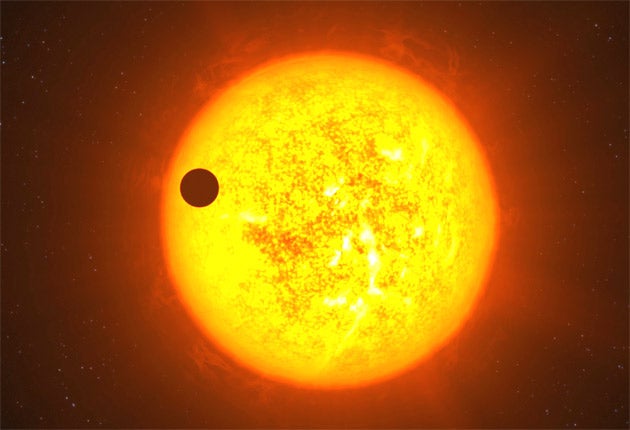New planet Corot-9b has Earth-like temperatures

Your support helps us to tell the story
From reproductive rights to climate change to Big Tech, The Independent is on the ground when the story is developing. Whether it's investigating the financials of Elon Musk's pro-Trump PAC or producing our latest documentary, 'The A Word', which shines a light on the American women fighting for reproductive rights, we know how important it is to parse out the facts from the messaging.
At such a critical moment in US history, we need reporters on the ground. Your donation allows us to keep sending journalists to speak to both sides of the story.
The Independent is trusted by Americans across the entire political spectrum. And unlike many other quality news outlets, we choose not to lock Americans out of our reporting and analysis with paywalls. We believe quality journalism should be available to everyone, paid for by those who can afford it.
Your support makes all the difference.The first planet with a "temperate" climate to orbit a distant star has been discovered by astronomers, who claim that the techniques used to study it will be critical in the search for Earth-like worlds beyond our own solar system.
Corot-9b, as the planet is called, is one of more than 400 "exoplanets" found to be orbiting other stars, but it is the first one with a near-normal temperature range that can be studied as it moves across (or "transits") the sun it orbits. "This is a normal, temperate exoplanet just like dozens we already know, but this is the first whose properties we can study in depth," said Claire Moutou, one of the team of astronomers at the European Southern Observatory who made the discovery. "It is bound to become a Rosetta stone in exoplanet research."
Corot-9b passes in front of its host star, 1,500 light years away in the constellation Serpens, every 95 days, and the transit lasts about eight hours, which is when astronomers can make measurements of the planet's composition and temperature, estimated to range from minus 20C to 160C.
"Corot-9b is the first exoplanet that really does resemble planets in our solar system," said Hans Deeg, the lead author of the study published in the journal Nature. "It has the size of Jupiter and an orbit similar to that of Mercury."
Join our commenting forum
Join thought-provoking conversations, follow other Independent readers and see their replies
Comments